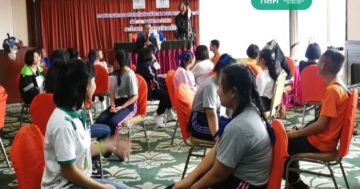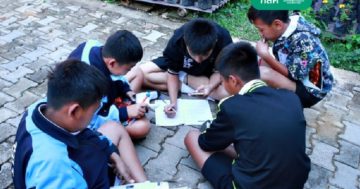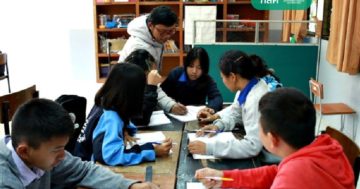670,000 people are the average numbers per year that these student groups from low-income families who tend to drop out of school or fall outside the education system. Looking at the data from the National Education Expenses in a school, students from low-income families can earn an average of less than 3,000 baht per month or less than 30,600 per year. Tuition fees account for 22% of household income, which is a burden that is more than 4 times for these families. Therefore, they choose to leave the school instead of continuing to study.

“In order not to have any child left behind even one person” because we believe that “Every child has dreams but many do not even dare to dream because of the low cost of living and lack of opportunities.”
When the educational inequality in Thailand is still a problem that cannot be helped directly, in the past, Thailand has allocated funds for poor and needy students in educational institutions under the Office of the Basic Education Commission Of Thailand (OBEC) and Department of local administration (DLA). In the fact, each student has different ‘problems’ and ‘needs’.
Therefore, Equitable Education Fund (EEF), OBEC, Thammasat University and Naresuan University conduct a joint research in order to ‘improve’ the budget allocation to meet the needs of the ‘student’ individually and relieve the burden of non-qualified education expenses. The first step in schools affiliated with the Office of Basic Education Commission of Thailand (OBEC) is to reduce disparities for the poorest students in the education system.

Teachers are screened through the application.

Survey accurately, Identity can be confirmed clearly







